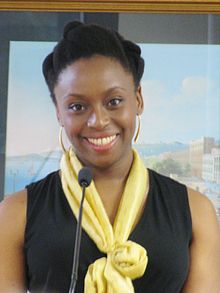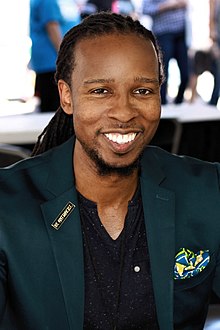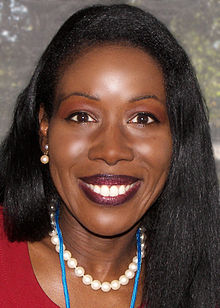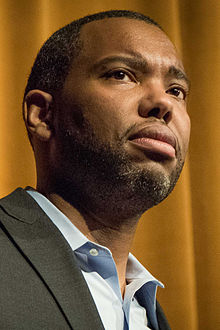For Sunday February 5, 2023
Lectionary Readings (Revised Common Lectionary, Year A)
Isaiah 58:1–12
Psalm 112
1 Corinthians 2:1–16
Matthew 5:13–20
“Is not this the kind of fasting I have chosen:
to loose the chains of injustice
and untie the cords of the yoke,
to set the oppressed free
and break every yoke?
Is it not to share your food with the hungry
and to provide the poor wanderer with shelter—
when you see the naked, to clothe them,
and not to turn away from your own flesh and blood?" (Isaiah 58:6–7)
For Black History Month I've been reading two books that have enjoyed widespread critical and popular acclaim. In The 1619 Project (2021), Nikole Hannah-Jones collects eighteen essays that explore the legacy of slavery in order to propose a new "origin story" for the United States that disrupts our conventional narratives. In How the Word is Passed (2021), Clint Smith describes his visits to eight monuments and landmarks that have shaped our nation's collective memory of slavery. I heartily commend both books.
Black Lives in North America have a long history — 497 years, to be exact.
 |
|
Chimamanda Ngozi Adichie.
|
Beginning with Portugal in 1444, European slave traders bought and sold a staggering 40 million African people to the "civilized" nations. The first African slaves in what's now the United States were brought by Spanish explorers in 1526, to a settlement in present-day South Carolina that lasted only three months, and then again in 1565 to another settlement that became the city of Saint Augustine, Florida.
We also know when the first Black Lives arrived in British North America. In a letter of January 1620 to Sir Edwin Sandys, John Rolfe, the treasurer of the Virginia Company back in London, described how in late August of 1619, a pirate ship named the White Lion landed about thirty miles from Jamestown. He wrote how the "Comandor" of the ship "brought not any thing but 20. and odd Negroes, which the Governor and Cape Marchant bought for victualls (whereof he was in greate need as he pretended) at the best and easyest rates they could." Four days later, another pirate ship called the Treasurer arrived with more slaves. These Angolans were bought by Portuguese slave traders, then stolen by pirates off the coast of Mexico, which pirates later landed near Jamestown and sold them a second time.
The United States was thus founded in 1776 with a problem from hell that was 250 years old — the mass enslavement of Black Lives that was essential to its agrarian economy. When Thomas Jefferson famously wrote that "all men are created equal," he owned 200 enslaved people. He owned about 600 slaves throughout his lifetime — for buying and selling enslaved people, or using them as collateral for his massive debts, could be as lucrative as growing tobacco and cotton. When Jefferson died on July 4, 1826, fifty years to the day after the Declaration of Independence, the only slaves he freed were his own children that he fathered with his slave Sally Hemings. A generation after Jefferson died, the official census of 1860 identified four million slaves in the United States.
 |
|
Ibram Kendi.
|
This is what the Yale historian Greg Grandin calls "America's founding paradox" in his book The End of the Myth (2019), which won the National Book Award: "the promise of political freedom and the reality of racial subjugation." Despite important progress, our social contract has never closed the chasm between promise and fulfillment to all of our citizens. And so today, after 500 years, we have our Black Lives moment.
It's hard to know how a single individual can make a difference. No one can do everything. Few of us have significant power. But however futile it might feel, we all have our small part to play. We can march and protest. Sign a petition. Vote. Many churches are doing an adult education series on race and racism. There is also charitable giving to good causes — my wife and I were inspired by Reed Hastings, the billionaire co-founder of Netflix, who pledged $120 million to Historically Black Colleges and Universities.
My own engagement with Black Lives has been shaped by four experiences. Although I was born in Ohio, my family moved to North Carolina when I was three. For six years I lived in a small town where, quite literally, Black people lived on one side of the railroad tracks and the whites lived on the other. So, I was shaped by that racist time and place, like when whites didn't want blacks coming to the public swimming pool.
After grad school, I taught for six years at a very conservative Christian college. One of the best things about that college was that 35% of our students were African Americans.
 |
|
Isabel Wilkerson.
|
While white students argued about whether women could be ordained, or even enroll in a preaching class, our black students ignored those controversies and went about their business with quiet confidence. Latricia pastored a store front church that her grandmother had founded. Corletta led a mega-church and traveled the world preaching. Lee pastored a historic "steeple church" in Detroit, and even invited me to preach. Forty years later, I still feel deeply indebted to those black students for how they shaped my life and thinking, and for how they helped me to keep my sanity.
Third, I have been shaped by traveling to Africa six times. In Ethiopia I participated in church development. In Kenya and the Central African Republic I taught short courses in seminaries. My daughter and I traveled to Uganda and Kenya to learn about women's micro enterprise. In Liberia, which began as a project of the American Colonization Society in the early 19th-century, I attended an HIV workshop. And in Egypt, well, I was just a tourist.
Fourth, I have tried to read a lot. We can all read. Reading expands our horizons. It connects us with perspectives that we might not otherwise consider. Reading can dispel our ignorance and challenge our cherished opinions. I can't imagine being culturally relevant without reading.
 |
|
Ta-Nehisi Coates.
|
Since JWJ launched in 2004, and until last May when we redesigned our website, we posted a book review every week — including over 77 book reviews about Black Lives. God cares about race and racism, and so should we. These books include a broad array of perspectives and genres: novels, history, economics, politics, culture, theology, poetry, photography, biography, and autobiography. For a complete list of these books about Black Lives, click here.
Similarly, throughout the years I've reviewed 54 films about race and racism. See here.
So, in the famous words from his Confessions that Saint Augustine heard that led to his conversion, I challenge you to "pick up and read!" Do not turn away from your own flesh and blood, says Isaiah in this week's lectionary.
Weekly Prayer
Phillis Wheatley (1753–1784)
O Thou bright jewel in my aim I strive
To comprehend thee. Thine own words declare
Wisdom is higher than a fool can reach.
I cease to wonder, and no more attempt
Thine height t’ explore, or fathom thy profound.
But, O my soul, sink not into despair,
Virtue is near thee, and with gentle hand
Would now embrace thee, hovers o’er thine head.
Fain would the heav’n-born soul with her converse,
Then seek, then court her for her promis’d bliss.
Auspicious queen, thine heav’nly pinions spread,
And lead celestial Chastity along;
Lo! now her sacred retinue descends,
Array’d in glory from the orbs above.
Attend me, Virtue, thro’ my youthful years!
O leave me not to the false joys of time!
But guide my steps to endless life and bliss.
Greatness, or Goodness, say what I shall call thee,
To give me an higher appellation still,
Teach me a better strain, a nobler lay,
O thou, enthron’d with Cherubs in the realms of day.Phillis Wheatley was born in Senegal, then taken as a slave to the United States at the age of eight (1761). There she was purchased by a Boston tailor, John Wheatley, whose daughter taught Phillis to read English, Latin, and Greek. Her first and only book of poetry, a compilation of thirty-nine poems, was entitled Poems on Various Subjects, Religious and Moral (1773), and published in London. Wheatley was the first African American to publish a book of poetry, and the first woman of any race to publish a book in America. She died in Boston in extreme poverty at the age of thirty-one.
Dan Clendenin: dan@journeywithjesus.net





